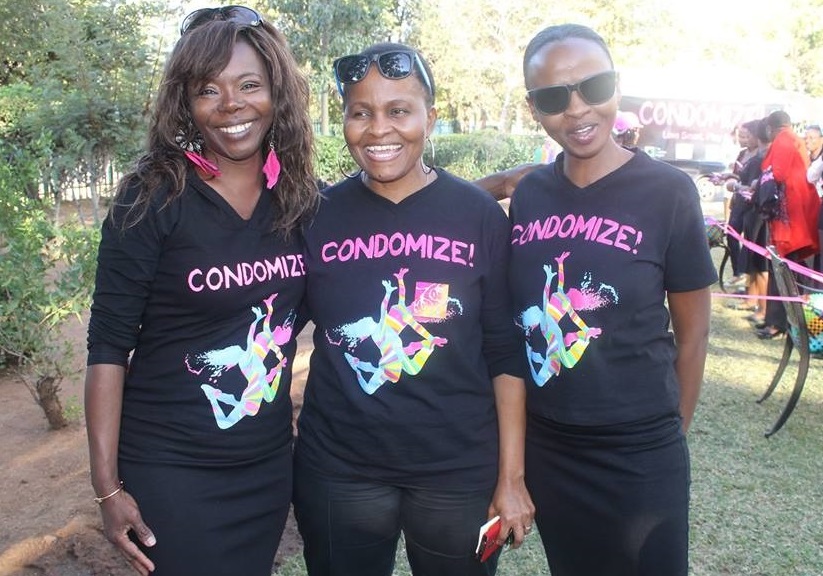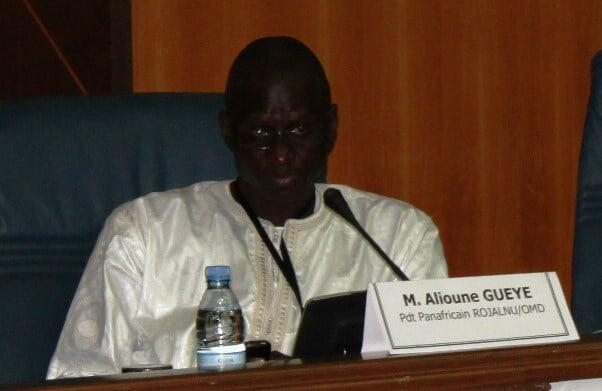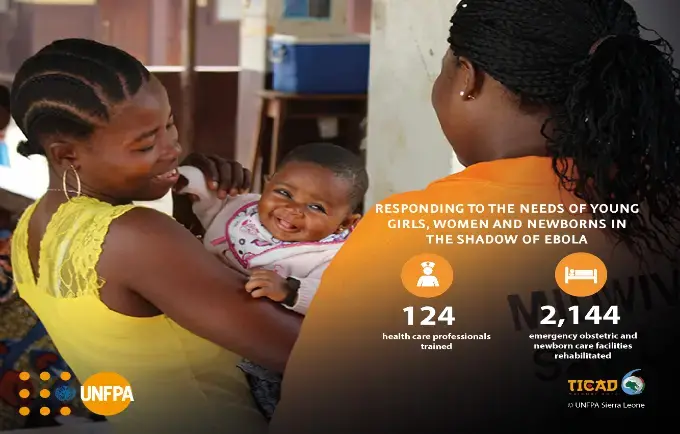Unemployment is a major problem in Africa. According to the World Bank, youth represent 60% of all unemployed. Many people believe that this "time bomb" must be transformed into a development opportunity involving not only governments, through appropriate policies, but also the civil society, the private sector and young people themselves. Some young participants that WCARO met at the 4th Pan-African Youth Leadership Summit, held from 13th to 17th January in Dakar, Senegal by the African Network of Young Leaders, ROJALNU, spoke on the issue.
Alioune Gueye, president of the African Young Leaders Network for MDG- ROJALNU
According to the ILO estimates, there are 75 million unemployed young people in the world, 38 million live in Africa that is an average rate of 10.3 % on the continent. Unemployment hampers human rights and personal development. The theme of the 4th Pan-African Youth Leadership Summit calls out to the African leaders and the international community because a number of programmes, such as the ten-year Plan of Action for Youth Empowerment and Development in Africa , suffer from lack of implementation and lack of resources, the African Charter Youth which takes this issue into account is not implemented. These documents put young people at the centre.
Today, we are working on acall for action to change that. Youth unemployment is the result of many things. For example, the crisis in northern Mali is not only an identity crisis, but also an employment problem. Islamists used the vulnerability of young people left idle to enrol them to their cause and pay them. So we cannot separate conflict, instability and poverty from unemployment. Unemployment is a cross-cutting issue.
As a solution, our countries must put in place education systems that are adapted to African realities. Financial crime, nepotism, and political clientelism deprive countries of sustainable investment and deprive youth of employment opportunities.
Good governance, peace and stability contribute significantly to development. So, youths should be included in the new development goals being prepared for the post-2015 agenda. All speakers at the summit reaffirmed their commitment and volunteered to present the grievances and concerns of young people at the highest level.
We asked the President of Senegal, Mr. Macky Sall, to be the spokesperson of African youths at the highest level of the African Union and the UN General Assembly. He granted the request.
Our implementation mechanism is to have an ongoing advocacy for the Dakar call for Action at national, regional and subregional levels. At the country level, we will increase actions in favour of the Dakar Call for Action with the end result being a development goal that focuses on youths.
Senegal
Mr. Thierno Kandji, Senegal Representative of the Junior Chamber International (JCI), an NGO with an active participation in the UN

JCI Senegal has 130 members divided into four sections: JCI Alliance Dakar, Dakar Future JCI, JCI Dakar Number 1, and JCI Ziguinchor.
Our areas of interventions are at community level, personal development, business and others. Our goal is to provide development opportunities for young people by giving them the ability to create positive change.
Every year, we develop an annual plan with various projects. In 2013 our flagship project was the development of a sense of public responsibility and good citizenship project "Man maye Senegal" (I am Senegal) which will continue until 2015.
In 2013, we conducted a cervical cancer mass screening in Mbacké, 180km from Dakar. More than 200 women were screened. We are still looking for funds to support the women that need medical attention. That is why, for 2014, the campaign will include treatment after screening for those who will need it. We will be going to Futa, in the north.
In terms of unemployment, we are helping young people in skills development, finding business opportunities, offering training in leadership, speeches, how to design and implement a project, how to speak in public, citizenship, etc.
Burkina Faso
Soumaila Traoré, Secretary in charge of human rights for the Burkinabe Federation of Associations for the Promotion of Disabled Persons (FEBAH)

I was a member of the Association of Young Disabled Students and now I am in the federation.
My disability is a result of a train accident at the age of two, which I do not remember. I have never felt different from others. My parents have always treated me like my brothers.
I am one of 60 young people who drove from Ouagadougou to Dakar to support the Pan-African Youth Leadership Summit. We are two disabled to have made the trip. Youths from Benin, Niger, Togo and Côte d'Ivoire travelled to Burkina to make then from there we all headed to Dakar.
We left Ouaga on 9th January at 15:40. When we reached Mali, twenty young people joined us and we arrived in Dakar on 12th January at 22:00.
Governments should take disabled into account when developing employment policies. Disabled people can contribute to development.
Ghana
Clement Achim Gyimah, West Africa Focal Point for ROJALNU
The unemployment data available to governments in West Africa do not reflect the reality on the ground. Unemployment remains a major problem for the region.
Many countries in the subregion have natural resources. Revenues from the exploration of these resources should be used to train young people and equip them to join this sector instead of fetching experts elsewhere.
The curriculum and training policies must be tailored to the needs of the labour market. Human capital must be developed according to the needs.
Agriculture does not attract young people. It is a sector which faces many difficulties. For example, if a young person decides to become a farmer, he/she has problems accessing fertilizers or tractors for high production. And even if he/she had all these, another problem that arises is transporting the harvest for processing or export.
If the youth keeps his harvest at home, he/she may lose all because of improper storage systems. The roads are not good and even if one manages to convey the crop, the cost of all these difficulties necessarily reflects on the price of the product.
Another problem of unemployment is that even with a project, there are funding problems because banks are not willing to take the risk.
We need in the sub-region what I call "Youth Bank ", a kind of job centre that will identify young people seeking employment regardless of their competence. There will be a section for graduates, another for school dropouts and another for rural youths. The sections will be created as required.
ECOWAS can handle this agency which will strengthen the capacity of youth, advice and guide them in their job search. We shared the idea with several public and private organizations to see how best to implement it.
Burundi
Augustin Nzambimana, Chair person of the youth wing of the Association for Supervision and Assistance to Orphans, Widows and Widowers in distress (AEAOVVD ) , Permanent Delegate of " Iteka ku mphuvyi "
My country has many orphans and widows mainly due to the civil war, HIV/Aids, teenage pregnancies and early marriages which often end up in divorce, thus leading to the abandonment of children. In 2010, vulnerable orphans were estimated at more than 600,000.
We sensitise people on becoming foster families for these children but many do not accept because they also face other difficulties.
The children we help live in the streets and are exposed to all kinds of deviations. Recently, AEOVVD and Iteka saved 18 children aged between 6 and 15 years old who lived in a tunnel in Bujumbura. Some of these kids use drugs.
Currently, only 12 are still with us because the others returned to their old lives. We placed them in an orphanage where they are studying and trying to get their childhood back. We do not have any drug treatment programme. We have a new partnership with the Burundian Drug Network who will be providing psychological counselling to these young people.
Furthermore, we seek land and mobilize people to farm for us for the harvest is used to feed our target populations. Some people give money, others come to farm for a number of days. The Rumonge Central Prison in the capital gave us a plot of 4 hectares for this purpose.
There are 9 million people in Burundi, 55% of whom are youths. In terms of youth employment, Burundi has an employment policy project, a strategic framework to fight poverty at the Ministry of Youth. For the past two years, the department facilitates internships for unemployed youths. As most are non-graduate, the employment projects for them do not last more than four months and often it is paving roads. We advocate for these young people to be trained in handy crafts, or fish farming. Graduates can join the processing industry.
Also the government should change the curriculum to align studies on the needs of the labour market. Another point that may help is the creation of partnerships for specialized training with other countries.





